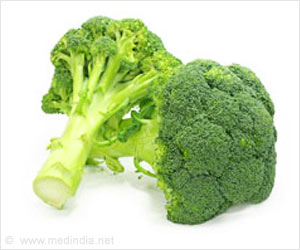A Boon For Gastritis Patients In The Form Of Broccoli
A new study finds that regularly eating broccoli sprouts may help prevent gastric cancer by reducing Helicobacteri pylori (H. pylori) infection, which is known to cause gastritis and is believed to be a major factor in peptic ulcer and stomach cancer.
The study, conducted by a Japanese team, found that taking a diet with 100 grams of broccoli sprouts per day resulted in patients with H. pylori infection experiencing a significant reduction of H. pylori and pepsinogen (a biomarker in the blood indicating the degree of gastritis)."Even though we were unable to eradicate H. pylori, to be able suppress it and relieve the accompanying gastritis by means as simple as eating more broccoli sprouts is good news for the many people who are infected," said Akinori Yanaka, who is from the University of Tsukuba, Japan, and served as lead investigator of the study.
In the study, scientists examined the protective properties of a chemical derived from broccoli sprouts called sulforaphane, which is protective against oxidations in cells that can damage DNA, and injure cells potentially causing cancer.
The team recruited 40 patients infected with H. pylori. 20 people from the group took a diet with 100 grams of two or three-day old sulforaphane-rich broccoli sprouts each day for two months. The remaining 20 used a diet with 100 grams of alfalfa sprouts instead of broccoli sprouts for the same period.
"We wanted to test alfalfa spouts together with broccoli sprouts," Yanaka explained, "because the chemical constituents of the two plants are almost identical." 100 grams of broccoli sprouts contain 250 milligrams of sulforaphane glucosinolate whereas alfalfa sprouts contain neither sulforaphane nor sulforaphane glucosinlate.
Glucosinolates naturally occur in cruciferous vegetables such as broccoli, cauliflower and cabbage. Glucosilates can be degraded enzymatically into sulforaphane and other bioactive components when the sprouts are chewed or cut.
Advertisement
The broccoli could not eliminate H. pylori completely. Taking the diet without broccoli sprouts for two months, H. pylori and pepsinogen came back to pre-trial levels in the subjects. "The data suggest strongly that a diet rich in sulforaphane glucosinolate may help protect against gastric cancer, presumably by activating gastric mucosal anti-oxidant enzymes that can protect the cells from H. pylori-induced DNA damage," Yanaka concluded. Previous studies have already found that broccoli sprouts possess anticancer properties.
Advertisement






